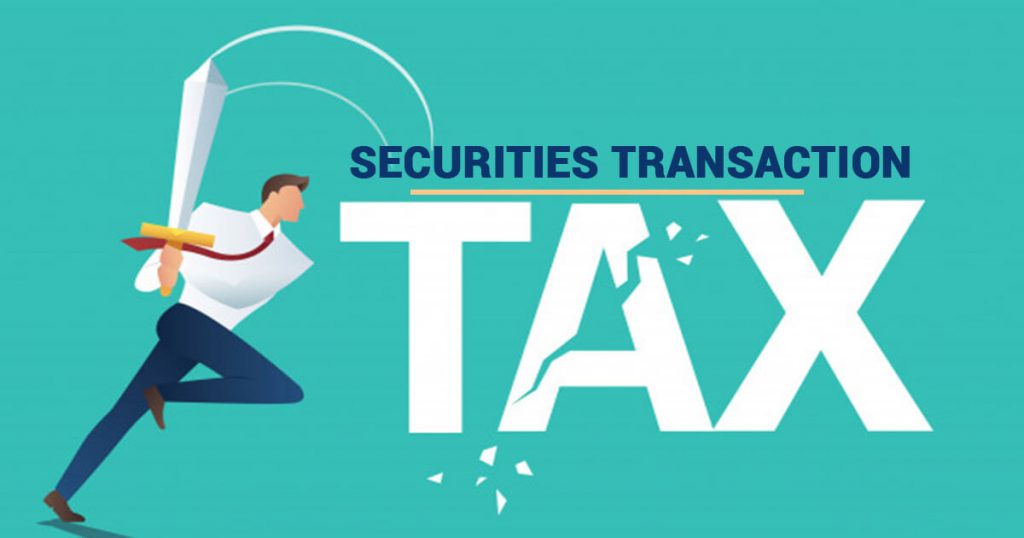What is Securities Transaction Tax- A Complete Guide

Khushboo Priya | Updated: Aug 21, 2019 | Category: SEBI Advisory
Securities Transaction Tax was introduced by Ex-Finance Minister, P. Chidambaram in the Budget 2004. However, it came into effect from October 2014. The sole objective behind the enforcement of the Securities Transaction Tax is to avoid tax evasion on capital gains by taxpayers.
It’s one of the most efficient and cleanest means of collecting tax from the financial market transactions. Usually, the investor pays such taxes on the total consideration received or paid in a share transaction.
There’s a lot more to know about such financial transaction taxes. Therefore, in this blog, we have described every basic detail of the same and will proceed bit by bit understanding each term clearly. Let’s get started with the definition-
Table of Contents
What is Securities Transaction Tax?
Also known as STT, Securities Transaction Tax is a form of direct tax which is identical to that of the tax collected at source (TCS). Such a tax is applicable to every sale and purchase of securities listed on the recognized stock exchanges in India.
STT is governed by the STT Act and has listed down several taxable securities transactions on which STT levies. Besides, taxable securities consist of equity derivatives and units of an equity-oriented mutual fund.
Furthermore, it also comprises unlisted shares that are sold as an offer to the public involved in IPO (Initial Public Offering). Moreover, shares here are listed in stock exchanges.
In a nutshell, Securities Transaction Tax is levied only on the share transactions done through a recognized stock exchange in India. Besides, STT doesn’t cover any off-market share transactions.
Browse through our articles on services provided at Swarit Advisors, and just let us know if we can help you with your IPO or Comapny Takeover or SEBI Advisory Services.
Important Features of STT
STT is quite easy to calculate and pretty simple to understand. Apart from these, STT has several other most significant features that distinguish it from others. Some of them are as follows:
- STT is applicable on the purchase and sale of every share transaction for both options and future.
- For calculating STT, the value of each future is done at the actual traded price while the value of every option trade is premium.
- The STT amount to be paid by the clearing member equals the total sum of all STT of trading members under him/her.
Applicability of Securities Transaction Tax
As per the Securities Contract Act, 1956, the STT applies to a number of transactions done on the domestic exchanges in the country. Several transactions on which the STT levies are the following:
- Shares, scrip, bonds, debentures, stocks, shares, or any such marketable securities traded on the stock market of a like nature in or of any registered company or other body corporates;
- Government securities having equity nature;
- Mutual funds of equity-oriented units;
- Derivative;
- Rights or interest in securities;
- Units or any other instrument issued by any collective investment scheme to the investors in such schemes;
- Securitized debt instruments.
Securities Transaction Tax Rate in India
The table portrayed below demonstrates the rate at which the taxation of various securities is done. The central government is responsible for setting the STT rate. The rate depends upon whether the transaction is purchase or sale and also on the type of security.
Let’s find out the STT rate in India in the table below:
|
Taxable Securities Transaction |
Rate |
Payable by |
Value on which STT shall be paid |
|
Purchase of an equity share |
0.1% |
Purchaser |
Price/value of purchase of security |
|
Sale of an equity share |
0.1% |
Seller |
Value of sale of a security |
|
Sale of a unit of an equity-oriented fund |
0.001% |
Seller |
Sale value of an equity-oriented fund |
|
Sale of an equity share in company/unit of an equity-oriented fund |
0.025% |
Seller |
Sale value of an unit of an equity-oriented fund |
|
Sale of an option in securities |
0.017% |
Seller |
Sale value of option premium in securities |
|
Sale of an option in securities, in case the option is exercised |
0.125% |
Purchaser |
Price of settlement value on the sale of options contract in securities |
|
Sale of a future in securities |
0.01% |
Seller |
Sale value of future in securities |
|
Sale of a unit of equity shares under an offer for sale referred to in sub-clause (aa) of clause (13) of section 97 |
0.2% |
Seller |
Value at which shares are sold |
|
Sale of unlisted units of a business trust under an offer for sale referred to in sub-clause (ab) of clause (13) of section 97 |
0.2% |
Seller |
Value at which shares are sold |
Securities Transaction Tax and Income Tax
Taxation on the money done through market trading hinges largely on the purpose for which share transactions are made. One may trade shares either as investment activity or for business purposes.
Whatever may be the case, the government levies the STT, and it varies. Based on the same, STT treatment is done in two ways:
Income from capital gains
It applies when the assessee receives a salary or is a self-employed person dealing in stock transactions. In such cases, the gains of losses are grouped either as long-term or short-term capital gains based on the period for which the stocks are held.
If the holding period stands less than a year, the gains are considered as short-term capital gains. However, if the holding period is more than a year, it would be considered as long-term capital gains.
Income from share trading as a profession
Such situations arise in the case the income from selling of stocks is considered as a professional choice. Furthermore, it is carried out from the business point of view. In such cases, the gains and losses from share trading are categorized as business income.
After then, the government levies tax on this at the regular income tax rates. If somebody pays STT on income from taxes, then under, Section 36 of the Income Tax Act, he/she can claim it as a deduction.
How is STT calculated?
Suppose that you are a trader who purchases 10,800 Call (strike price) on Nifty for Rs. 42 (70 shares make one contract). However, Nifty ends at 10,900 on the expiry day, which is the settlement price. The 10,800 Call amounts Rs. 100 ‘in the money.’ You give the purchaser Rs. 100 and he/she pockets the premium of Rs. 58.
According to the previous rule, STT levied at 0.125% of the entire settlement price (10,900). Because one contract is made up of 70 shares, the tax would be calculated as-
STT (according to old method) = 10,900*70*0.125%= Rs. 953.75
However, after the budget 2019, the STT will be applicable on the difference between the strike and settlement price i.e. 100 in the said contract.
STT (new) = 100*70*0.125% = Rs. 8.75














